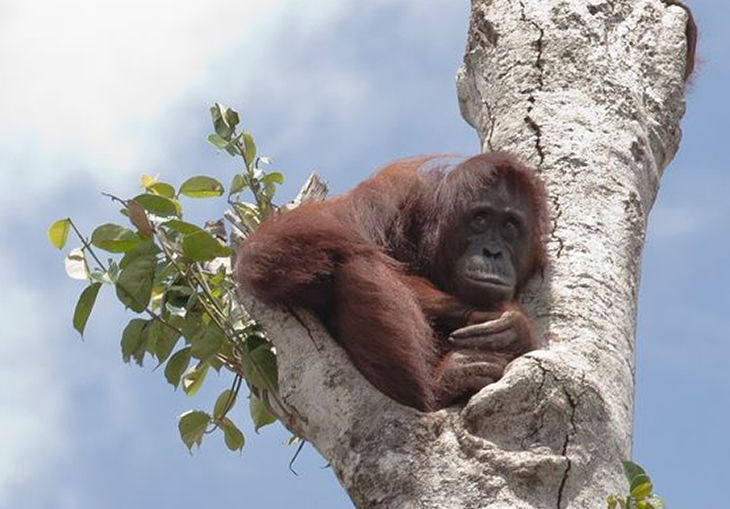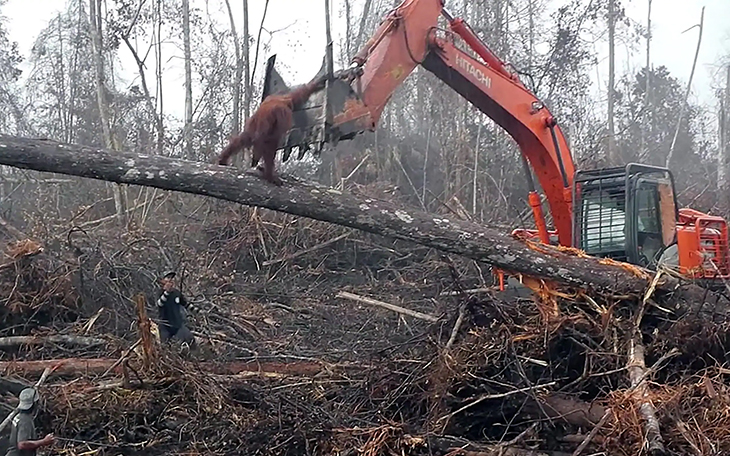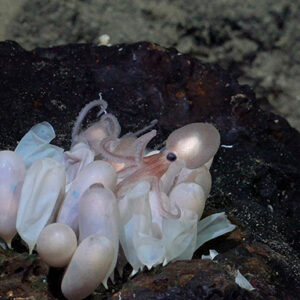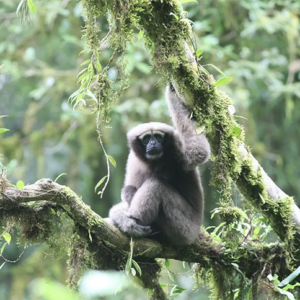
With the rainforests of the world being destroyed and burnt down at a rapid rate by the human society in order to profit from the area of the once lush jungle and home to wild animals, this becomes another problem for those living there.
Animals that seek refuge in jungles and forests have suddenly been displaced and oftentimes have nowhere else to go.
The orangutan population has further diminished because of land urbanization that they are on the brink of extinction, all thanks to human activity.
A tragic example of this just occurred in Borneo, an island part of Southeast Asia’s Malay Archipelago, wherein animal rescue workers recorded a desperate moment of a heavily pregnant orangutan clinging on to the last remaining trees in her former rainforest home – right before bulldozers came and destroyed all that were still left standing.

Boon-Mee was so traumatized witnessing her home being destroyed that she just clung on to the last remaining tree trunk of her sanctuary as motorized machinery destroyed what used to be her home.
As a result of all the trees being chopped down, she was unable to look for food for her and her unborn baby, which would eventually lead to starvation.
Palm Oil plantations all over Indonesia, Borneo and Sumatra have completely destroyed their lush forests and homes of orangutans rendering these primates homeless with nowhere else to go.
Year after year, apes are slaughtered at the hands of humanity because of the ever-growing agricultural industry. Alarming figures have shown that the orangutan population decreases up to 25 animals per day.
According to the World Wildlife Fund, there were over 230,000 orangutans in Southeast Asia in the last century. At present, that number has decreased at a rapidly horrendous rate of 41,000 in Borneo and 7,500 in Sumatra – the only two places in this side of the world where they can be found.
In the rare and lucky case of Boon-Mee, the plantation owners felt pity and reached out the International Animal Rescue (IAR), a UK-based charity in order to seek aid for the mother and unborn child.

Several hours after the complete burning of the local forest, a team from IAR, along with local officials arrived on the scene to find Boon-Mee and three other orangutans. Rescuers were forced to shoot them with a tranquilizer before catching them with a net.
Lis Key, IAR official made a statement:
“It’s heartbreaking to see the appalling state of these animals as their habitat is razed for the palm oil industry – they were weak from hunger. It’s a small comfort that this time rather than chase them off or kill them, the company did the right thing and contacted us.”
Palm Oil is a type of vegetable oil used mostly in cooking that is extracted from fruits and seeds of the palm tree – also known as the African palm. The oil extracted is mostly used in food like wine, instant noodles, yogurt and ice cream. It can also be found in household products like shampoo, cosmetic goods and laundry detergents. Another use for this highly demanded oil is in biofuel.
An approximate of 66 million tons of palm oil are produced yearly, making it a trend to burn forests for more areas of plantation, which not only contributes to deforestation, but to a massive displacement of rural human populations and local animal species.
Palm Oil is the biggest reason of why orangutans are on the brink of their extinction, with the species just having been included to the list of critically endangered animals. The orangutan population in Borneo has been lessened by half between 1999 and 2015 alone.
What are your thoughts? Please comment below and share this news!
True Activist / Report a typo


